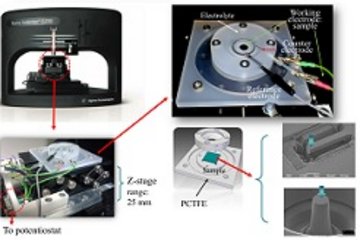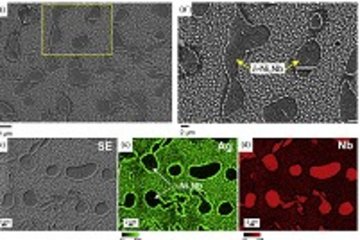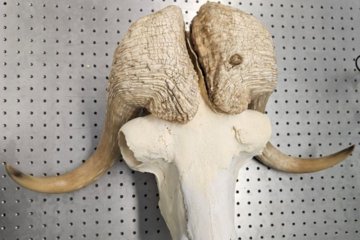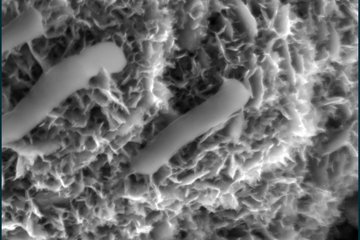All genres
1.
Journal Article
Liquidus projection and reaction scheme of the Co–Al–Nb system. Journal of Phase Equilibria and Diffusion 33 (3), pp. 210 - 221 (2012)
2.
Journal Article
Experimental Determination of the Ternary Co–Al–Nb Phase Diagram. Intermetallics 18 (11), pp. 2191 - 2207 (2010)
3.
Conference Paper
Experimental investigations of structure type variations of Laves phases. In: Proceedings International Conference: Modern Material Science: Achievements and Problems, pp. 55 - 56. Modern Material Science MMS-2005, Kiev, Ukraine. Skorokhod, V. V., Kiev, Ukraine (2005)
4.
Talk
Experimental Investigations of Phases, Phase Equilibria, and Melting Behaviour in the Systems Fe–Al–Nb and Co–Al–Nb and Their Terminal Binary Systems. Calphad XL, Rio de Janeiro, Brazil (2011)
5.
Talk
The Co–Al–Nb System: Phase Equilibria and Composition-Dependence of Crystallographic Properties. TOFA 2010, Porto, Portugal (2010)
6.
Talk
Investigation of Phase Diagrams of Laves Phase Containing Binary and Ternary Nb–TM(–Al) Systems with TM=Cr,Fe,Co. 2nd Sino-German Symposium on Computational Thermodynamics and Kinetics and Their Applications to Solidification, Kornelimünster, Aachen, Germany (2009)
7.
Talk
Phase equilibria of Laves phases in ternary Nb–X–Al systems with X = Cr, Fe, Co. Discussion Meeting on Thermodynamics of Alloys - TOFA 2008, Krakow, Poland (2008)
8.
Talk
Experimental Investigations of Structure Type Variations of Laves Phases. International Conference on "Modern Materials Science: Achievements and Problems", Kiev, Ukraine (2005)
9.
Talk
Phase Relations between Laves Phases in Transition Metal Systems - Case Studies: Co–Nb, Al–Co–Nb, Cr–Ti, Fe–Zr, Al–Fe–Zr. EUROMAT 2005, Prague, Czech Republic (2005)
10.
Talk
Phase Equilibria in the Al–Co–Nb Ternary System in the Vicinity of the Laves Phases. CALPHAD XXXIV, Maastricht, The Netherlands (2005)
11.
Talk
Investigation of the Phase Equilibria in the Al–Co–Nb System. Preliminary Results. International Workshop "Laves Phases IV", MPI für Eisenforschung, Düsseldorf, Germany (2005)
12.
Talk
Investigation of the Phase Equilibria in the Al–Co–Nb System using Liquid-Solid Diffusion Couples. Preliminary Results. COST 535 Diffusion Couple Workshop, MPI für Eisenforschung, Düsseldorf, Germany (2004)
13.
Poster
Thermodynamic assessment of the Co–Nb and Al–Co–Nb systems. MRS Fall Meeting 2008, Boston, MA, USA (2008)










